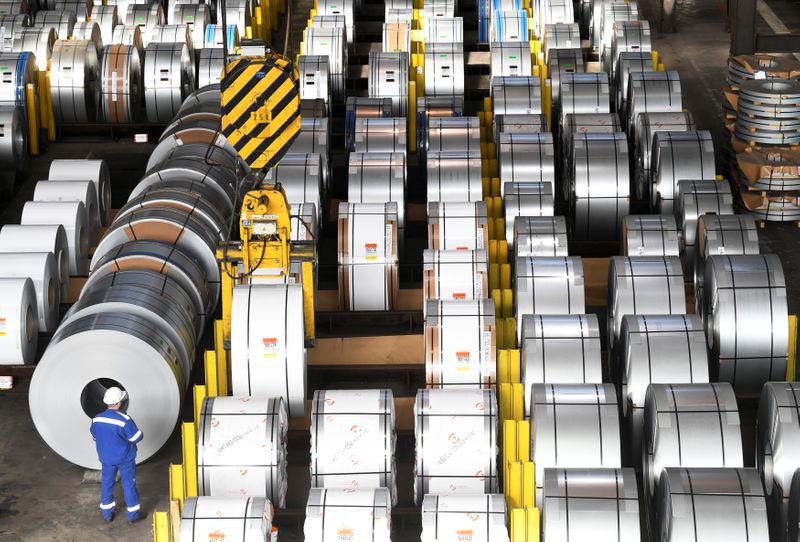BERLIN (Reuters) – German industrial output rose far less than expected in July, suggesting Europe’s largest economy faces a slow return to production levels that preceded the crisis unleashed by the coronavirus pandemic.
Industrial output rose by 1.2% on the month, a third successive increase after record drops in March and April during a lockdown, figures released on Monday by the Statistics Office showed. A Reuters poll had forecast an increase of 4.7%.
A breakdown of the data showed that activity in the construction sector, which had expanded during the lockdown, shrank by 4.3%, dragging on the headline figure.
The automotive sector, which before the crisis was grappling with falling demand and an expensive shift to electric vehicles, saw activity expand by almost 7% month-on-month but production levels were still around 15% lower than in February.
“The German economy remains on track for a strong surge in the third quarter,” said Carsten Brzeski, chief euro zone economist at ING. “It is too early to tell how much momentum will be left thereafter.”
Even excluding the volatile construction and energy sectors, output rose by 2.8%, still lower than the forecast.
The Germany economy has weathered the pandemic much better than many of its big European neighbours, largely because the country kept factories open during a six-week lockdown. The government has also put in place a massive stimulus package.
A strong rebound in activity in May and June raised hopes of a fast recovery but economists now mostly predict a slow return to pre-crisis activity levels.
Industrial firms expect production to increase slightly in the coming months, according to a survey published on Monday by the Ifo economic institute.
Industry orders data published last week showed that domestic demand had fallen by more than 10% in July.
“With the latest data showing a small fall in domestic orders in August, while activity is losing momentum elsewhere in Europe, the economic recovery looks set to be moving into a more difficult, slower phase,” Jack Allen-Reynolds of Capital Economics wrote in a note.
(Writing by Joseph Nasr; Editing by Michelle Adair and Catherine Evans)



















